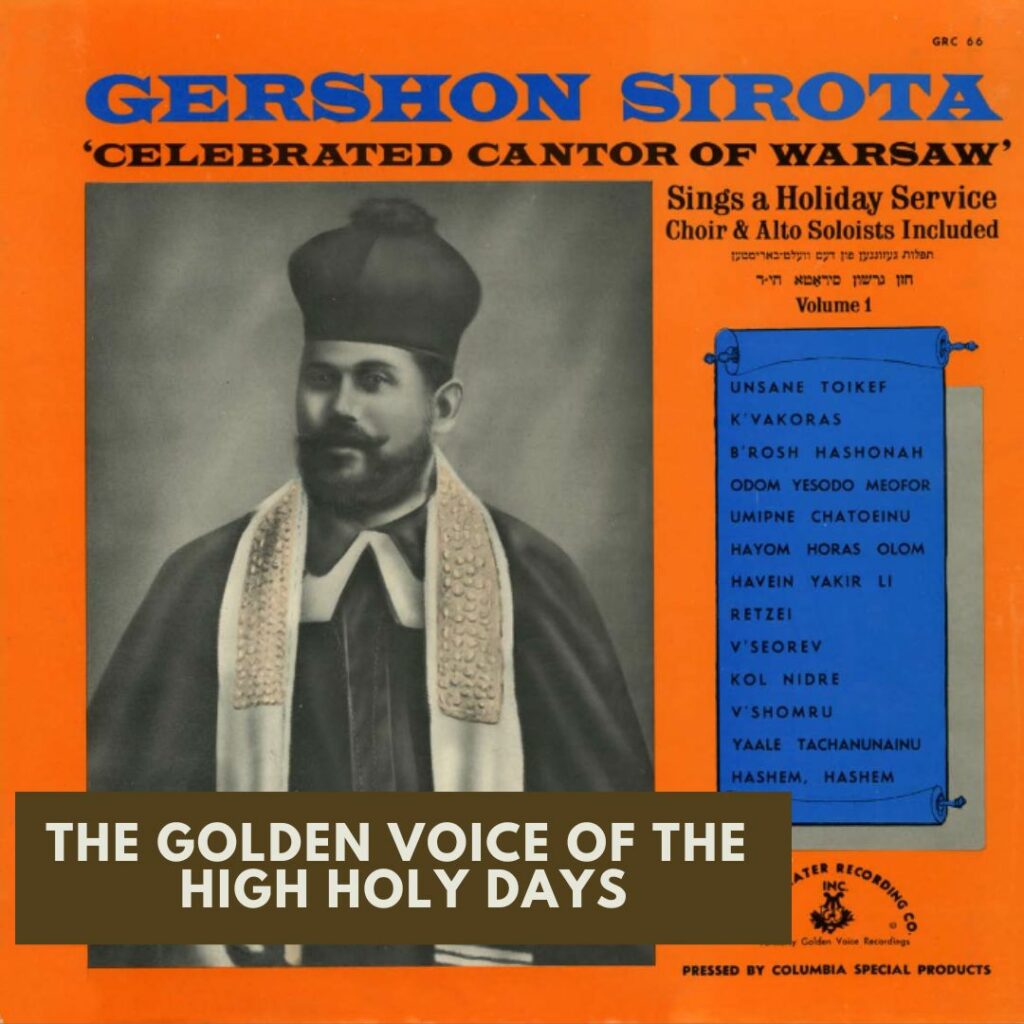The Golden Voice of the High Holy Days: Remembering Cantor Gershon Sirota

As we prepare for the High Holy Days, we reflect on tradition and prayer and the voices that have carried these sacred melodies through time. Among them stands one of the greatest cantorial legends of all time — Cantor Gershon-Yitskhok Leibovich Sirota (1874–1943).
Often called the “Jewish Caruso,” Sirota’s rich tenor voice helped define the Golden Age of Khazzanut (cantorial music). He began his career in Odessa, later serving eight years as cantor of the Shtatshul (State Synagogue) in Vilna, where he began a lifelong collaboration with choirmaster Leo Lowe. In 1907, he became the cantor of the prestigious Tłomackie Street Synagogue in Warsaw, a role that solidified his reputation as one of Europe’s greatest liturgical artists.